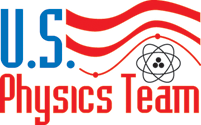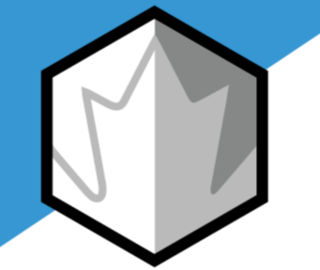The United Kingdom Mathematics Trust (UKMT) is a charity founded in 1996 to help with the education of children in mathematics within the UK.
Hong Kong Olympiad in Informatics is an annual programming competition for secondary school students in Hong Kong, emphasizing on problem solving techniques and programming skills. It is co-organized by the Hong Kong Association for Computer Education (HKACE) and the Hong Kong Education Bureau (EDB). It serves as a preliminary contest to international, national and regional competitions such as the China National Olympiad in Informatics (NOI) and the International Olympiad in Informatics (IOI). The first HKOI was held in 1997.

Multiple choice (MC), objective response or MCQ(for multiple choice question) is a form of an objective assessment in which respondents are asked to select only the correct answer from the choices offered as a list. The multiple choice format is most frequently used in educational testing, in market research, and in elections, when a person chooses between multiple candidates, parties, or policies.
The United States National Chemistry Olympiad is a contest held by the American Chemical Society (ACS) used to select the four-student team that represents the United States at the International Chemistry Olympiad (IChO).

The International Biology Olympiad (IBO) is a biological olympiad for pre-university students under the age 20, and is one of the most well-known International Science Olympiads. The first IBO was held in Czechoslovakia in 1990, and it has since been held annually. The competition have gradually expanded to include more than 75 participating countries across five continents. All participating countries send the four winners of their National Biology Olympiad to the IBO, usually accompanied by two adults who are members of the international jury, for the duration of the competition.
The Flanders Mathematics Olympiad is a Flemish mathematics competition for students in grades 9 through 12. Two tiers of this competition exist: one for 9th- and 10th-graders, and one for 11th- and 12th-graders. It is a feeder competition for the International Mathematical Olympiad.
Student Selection and Placement System or Higher Education Foundations Examination, formerly Higher Education Examination Undergraduate Placement Examination,, is a standardized test for the admission to higher education in Turkey administered by ÖSYM. Within the Turkish education system, the only way to enter a university is through this exam. 1,692,000 high school graduates took the exam in 2011 and 2,255,386 in 2016. It is a multiple choice exam, with 5 options for each question. It has two parts, together called the Core Proficiency Test-Advanced Proficiency Test.
The Center for Excellence in Education (CEE) is an American private nonprofit organization that seeks to help academically outstanding high school and college students achieve successful careers in science and technology and fulfill leadership roles. CEE administers three acclaimed programs: the Research Science Institute (RSI), an annual summer research program for 80 of the world's most accomplished high school students held at MIT; the USA Biology Olympiad (USABO), a national biology competition for high school students in the United States; and the Teacher Enrichment Program (TEP), a series of enrichment programs for STEM educators in the United States.
The South African Computing Olympiad (SACO) is an annual computer programming competition for secondary school students in South Africa. The South African team for the International Olympiad in Informatics is selected through it.
The British Mathematical Olympiad (BMO) forms part of the selection process for the UK International Mathematical Olympiad team and for other international maths competitions, including the European Girls' Mathematical Olympiad, the Romanian Master of Mathematics and Sciences, and the Balkan Mathematical Olympiad. It is organised by the British Mathematical Olympiad Subtrust, which is part of the United Kingdom Mathematics Trust. There are two rounds, the BMO1 and the BMO2.

The United States Physics Olympiad (USAPhO) is a high school physics competition run by the American Association of Physics Teachers and the American Institute of Physics to select the team to represent the United States at the International Physics Olympiad (IPhO). The team is selected through a series of exams testing their problem solving abilities. The top 20 finalists are invited to a rigorous study camp at the University of Maryland to prepare for the IPhO.
The International Bible Contest is a worldwide competition on the Tanakh for middle school and high school Jewish students. It is held annually in Jerusalem, on Yom Ha'atzmaut. Because the event is officially sponsored by the Israeli government and the Jewish Agency, it is attended by the Prime Minister of Israel, Minister of Education and the Chairman of the Jewish Agency.
This article describes the selection process, by country, for entrance into the International Mathematical Olympiad.
Science Olympiad Foundation (SOF) is an educational foundation established in 1998, based in New Delhi, India which promotes science, mathematics, general knowledge, introductory computer education and English language skills among school children in India and many other countries through various Olympiads. However, they are not the official organizer of Olympiads in India.

The ICFESexamination, or Saber 11, is a high school exit examination administered annually in grade 11 in Colombian high schools. The exam is standardized, similar to the SAT and ACT examinations taken by high school students in the United States. The purpose of the exam is to evaluate students' aptitude in five subjects: critical reading, mathematics, social studies, science, and English. Each exam question has four multiple-choice answers, except for the English section which provides between three and eight possible answers for each question.

An examination or test is an educational assessment intended to measure a test-taker's knowledge, skill, aptitude, physical fitness, or classification in many other topics. A test may be administered verbally, on paper, on a computer, or in a predetermined area that requires a test taker to demonstrate or perform a set of skills.
The National Standard Examination in Biology or NSEB is an examination for biology for higher secondary school students in India, usually conducted in the end of November. The examination is organized by the Association of Teachers in Biological Sciences in association with Indian Association of Physics Teachers and Homi Bhabha Centre for Science Education (HBCSE). Each year over 30,000 students of 12th Standard or below, sit for this examination.
The National Standard Examination in Junior Science or NSEJS is an examination in Science for secondary school students, usually conducted in the end of November. Organized by the Indian Association of Physics Teachers in association with Homi Bhabha Centre for Science Education (HBCSE), NSEJS is considered to be the toughest Science exam on higher secondary level globally. The NSEJS is carried out every year since 1987 in English, Hindi & a few other Indian languages. More than 80,000 students from over 1,500 centres take part in these olympiads.
The Korean Mathematical Olympiad is a mathematical olympiad held by the Korean Mathematical Society (KMS) in Republic of Korea.

The Junior Science Olympiad of Canada or JSOC is an examination in science for secondary school students, with one test usually conducted in June and a second test in October. Organized by Jennifer Pitt-Lainsbury, Marisca Vanderkamp, Maria Niño-Soto, and Andrew Moffat in association with the University of Toronto Schools (UTS), JSOC encompasses material of the grade 12 curriculum for the three sciences.





